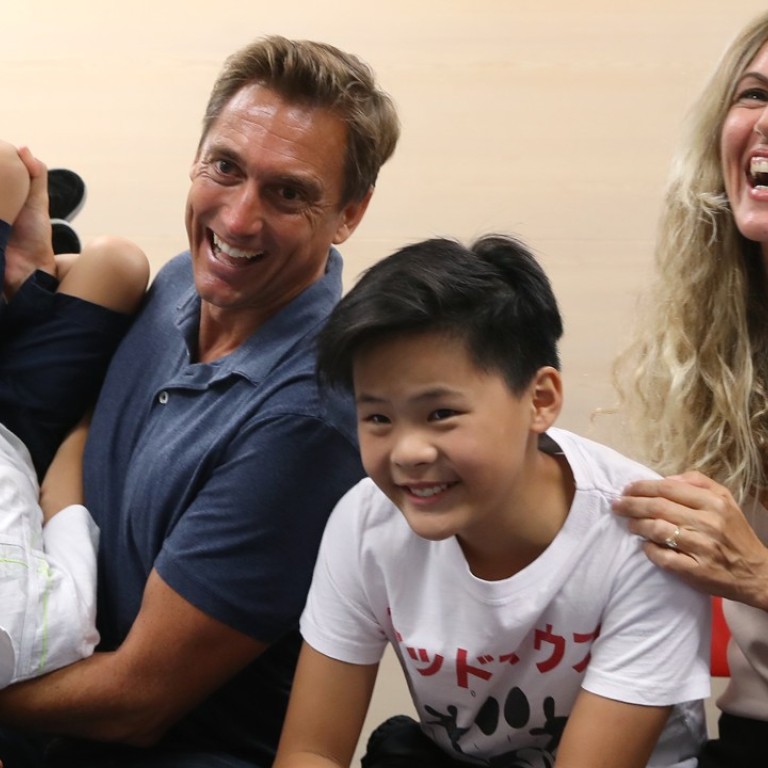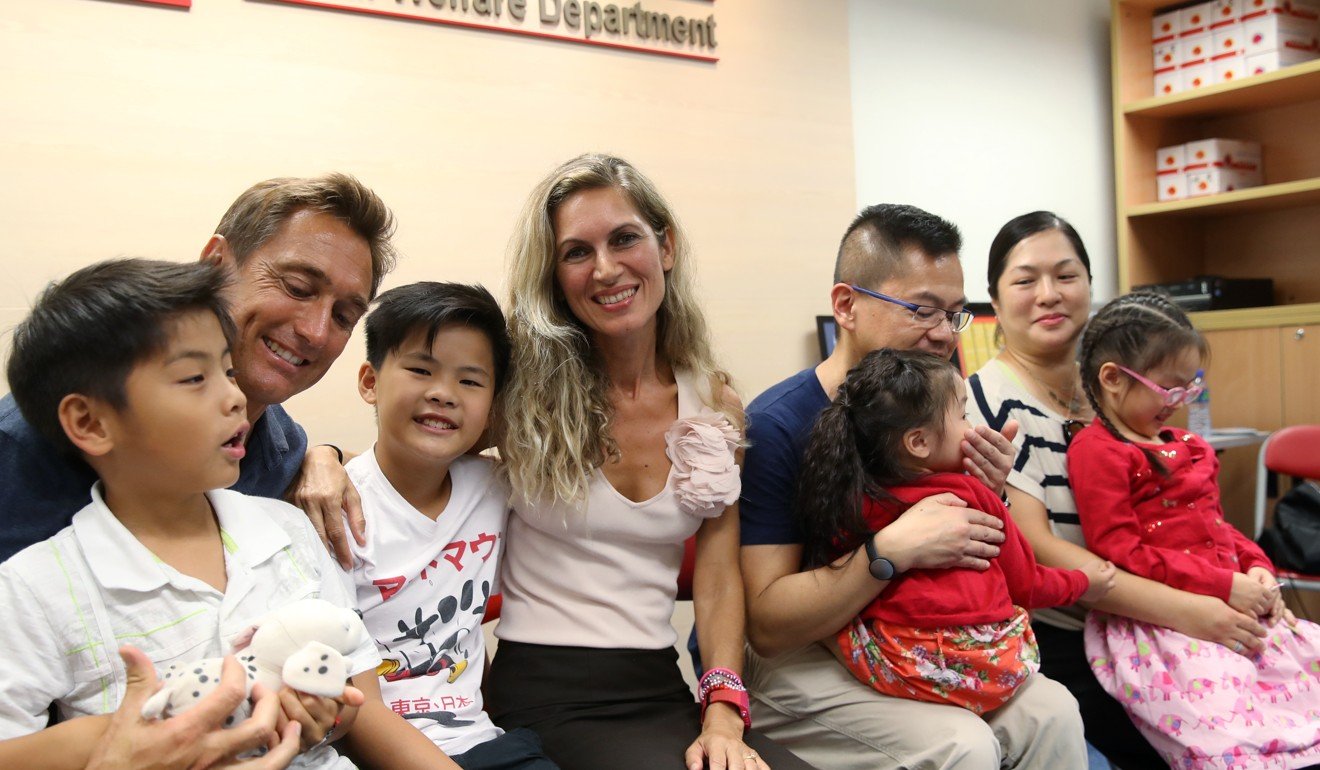
Hong Kong parents and would-be adopters reminded to put children’s needs first
Social Welfare Department’s Adoption Unit calls for more awareness and support for children waiting for stable families, especially those with special needs
“I don’t feel different from other kids at school. I am proud of being adopted. Because I got to choose [my parents],” Luke, 11, says while his six-year-old brother Ryan, the second adopted child of the Colbrans, clings to their parents and crawls all over their laps.
The Chinese boys may not look like their adoptive parents, but the bonds they have formed appear no less different from those of a biologically related family unit.
While Ryan roughhouses with his father, his mum displays two diaries filled with hand-written notes detailing the boys’ development, including a goodnight message by Luke left one evening on the couple’s bedroom door.

The Colbrans and their boys may seem like a match made in heaven. But not every child at the Social Welfare Department’s Adoption Unit is as lucky as Luke and Ryan, and the chances of integrating successfully into a new family have shrunk in recent years.
By the end of April, the unit had 72 children awaiting adoption, aged from under a year to more than 16 years old. The problem, though, does not concern numbers – about 160 households have applied – but centres on finding the right match, officer-in-charge Ronnie Tse Bik-san says.
Adoption taboo must end, says mum who gave up baby and another who adopted
From 2015 to 2017, cases of successful local and overseas adoptions facilitated by the unit dropped from 70 to 55, and 18 to seven respectively.
We hope more suitable families can accept some children with certain special needs
While most adoptive parents preferred babies and toddlers with good general health, “many of our children are aged above three, and more than 40 of them have different levels of medical conditions, including congenital heart disease, hernia, and blood vessel tumour,” Tse says. Biological families’ complicated backgrounds add to the challenges.
Tse says some children born to parents who were very young or substance abusers may also struggle with dyslexia or other learning difficulties.
If no matching families are found, the children live in orphanages or with foster families until they are 18.
“We hope more suitable families can accept some children with certain special needs,” Tse says, adding that the unit requires applicants to have a monthly disposable income above the city’s median level. In 2017, it was HK$27,000 (US$3,400) for a household of two.
How mother moved to China to teach her adopted girls to be Chinese
“We have seen cases in which children who suffer from learning difficulties because of their early years in orphanages catch up quickly after being adopted into a stable home,” Tse says.
On the eve of Father’s Day, Craig and Elisa Colbran, both 45, joined department calls to encourage would-be parents to adopt based on the children’s best interests and never lose sight of the true meaning of parenthood.

“Adoption is like a marriage in some way. You are not of the same blood. But the love is still just as strong,” says Craig, a pilot who has been married to Elisa, a high-school teacher, for more than two decades.
The couple settled in Hong Kong 15 years ago, and made their first application to Tse’s unit in 2009 with “quite open preferences”.

“You can’t go into [adoption] with a negative view,” Craig says.
“You go in with the idea that you want to raise children … [meaning] you take them as they are ... That’s the joy of parenting, and part of the challenge.”
You go in with the idea that you want to raise children … [meaning] you take them as they are
Before the Colbrans adopted Luke in 2010, they were warned that the boy might need speech therapy. “It turned out he was just saying ‘Hong Kong’ as ‘Hah Kong’ ... But when he started fully learning English, he was perfectly fine,” Craig says.
Iris Liu, adoption programme director of International Social Service Hong Kong, an NGO, says early intervention could be introduced in hospitals to identify and support parents with potential difficulties in raising children.
“We have seen many [troubled] parents who don’t show up for consultations because of different reasons and their children can’t be put up for adoption at an early age, which only worsens the development of the kids,” she says.
The shortage of public medical and counselling services in Hong Kong also deters would-be parents from adopting children with special needs.
Adoptees reaching out to Hong Kong birth parents
“It may be easier for candidate parents if we have sufficient services, for example, regular assessments and therapists in schools,” she says.
Liu, who has about two decades of experience in charity work, believes the children deserve more priority and attention.
“Abandoned and adopted children always have a few missing pieces in their life puzzles.”
Prospective adoptive persons and families may contact the Social Welfare Department’s Adoption Unit at +852 3595 1935 or by email to [email protected].
The International Social Service Hong Kong, Mothers’ Choice and Po Leung Kuk are also officially recognised adoption service providers.

